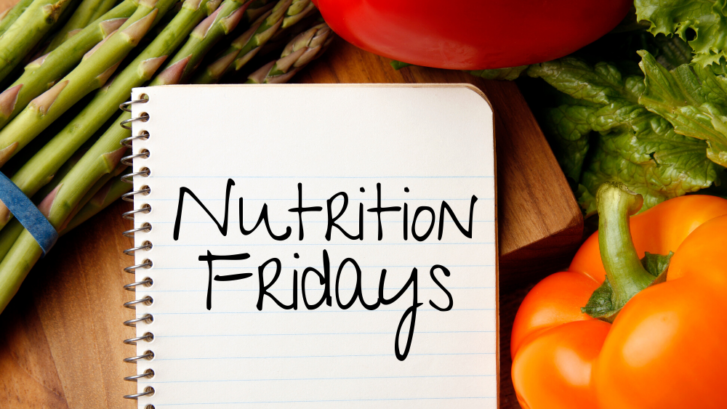OMAD: Intermittent Fasting’s New Extreme
Several weeks ago we wrote a blog that put a spotlight on Intermittent Fasting (IF), a trending meal-timing plan that has begun to show great results in achieving weight-loss. Today, we would like to follow up on our previous article by going in-depth on a variation of IF known as OMAD, or One Meal a Day—an extreme version of IF.
What is OMAD?
OMAD is a fad diet that is currently gaining popularity on the internet due to its use by celebrities and some MMA athletes. Since it is currently based on hearsay and has a general lack of sufficient evidence one way or another, it is important to remember to consult your primary care physician before starting such a diet.
Whereas IF restricts the times in which you are able to eat to a period of 8 hours or less while fasting for the rest of the day, OMAD takes this concept to an extreme. As the name suggests, OMAD limits your eating window to the course of one meal. In other words, all of the calories and nutrients needed to make it through the day are taken in a single period of time. For the rest of the day, you are fasting.
Different IF schedules are referred to by the hours of their corresponding fasting and eating windows. For instance, the standard IF period of fasting for 16 hours and its calorie intake period of 8 hours is referred to as ’16:8 Fasting’. Under this naming scheme, OMAD is usually referred to as ’23:1 Fasting’, as you are supposed to eat your single meal in under one hour.
Why should I eat OMAD?
Many of the benefits of OMAD are similar to the ones found for IF, but just more significant in their results. A basic list would include:
- Weight Loss
- Autophagy
- Convenience
- Increase in focus and productivity
Weight loss is a major benefit of fasting in general. With a more restricted eating window, it will be even more difficult to overeat—furthering the amount of weight lost. Some studies like this one have shown beneficial findings, such as a reduction in BMI, when someone eats only one or two meals a day.
Recently discovered in 2016 by Japanese cell biologist Yoshinori Ohsumi, autophagy is a breakthrough in medical science that has furthered our understanding of the human body and its natural healing abilities. Autophagy, as mentioned in our previous article, is the body’s process of recycling and repairing old cells. Ignited by fasting, autophagy works to make the body more efficient and productive, ensuring that each cell makes the best use of the energy and nutrients available to it. Autophagy helps remove the dreaded ‘skin curtain’, the flab of loose skin that accompanies drastic losses in weight, by recycling the old and now-useless skin and fat cells and incorporating their material back into the body for the construction of new stronger and healthier cells. While it may be difficult to tell when the body has begun autophagy, Ohsumi’s research shows that it typically begins to engage after 12 to 16 hours of fasting.
One of OMAD’s main draws is the convenience of food choice. Proponents of the meal-timing plan say that the only concern is when you eat, not what you eat. So technically, yes—you can eat a pizza for your single meal, though most health professionals would be mortified at such a suggestion. We encourage you to eat healthier alternatives, as outlined by several of our Nutrition Friday articles.
What time of the day should I eat?
Most of the time, people following OMAD will opt to have their meal towards the end of the day, right before falling asleep, making it their ‘dinner’. Blake Horton, a social media celebrity whose claim-to-fame was through daily posts of himself eating gigantic, seemingly-unhealthy meals all the while maintaining a well-toned and muscular physique—claims that eating large meals at night is beneficial for sleeping. It is important to note that in addition to his unorthodox diet, he regularly works out 2-3 hours a day. So no—your diet is not all that matters when it comes to having strength and muscle tone.
That sounds great and all but unfortunately, this study’s research seems to show counter-evidence in terms of eating in the morning instead. And to add more to the controversy—in his outline of OMAD, Dr. Eric Berg suggests that you do what is most convenient for you, so long as you maintain a stable schedule and eat around the same time every day. So where does that leave us? Ultimately, you should be listening to your body and be aware of your schedule. If you are going to do commit to OMAD, pick the time that works best for you, and stick to it.
What are the drawbacks of eating OMAD?
Due to the highly restrictive nature of OMAD being an extreme version of IF, there is a great chance of failure when it comes to your willpower and discipline. Most experts don’t believe that such a meal-timing plan is sustainable due to the strain extreme hunger could cause to your mental fortitude. On really rough days, you run the potential of recessing back into old habits and pigging out on a huge pizza for your one meal, instead of picking healthy and nutrient dense foods.
Another potential pitfall of OMAD is the room for nutrient deficiency, as you only have a limited time period in which to take in your necessary nutrients. An easy answer to this would be to take supplements, but depending on who you ask—that raises a red flag for any diet.
Several other negative side effects have been found, such as extreme feelings of hunger, shakiness, the inability to concentrate, fatigue, and brain fog. It is also considered dangerous for those individuals who suffer from conditions such as hypoglycemia and diabetes.
The Bottom Line
Most people will find that this meal-timing plan is just too extreme to commit to for a lengthy period of time, as the end-of-day cravings seem to eventually win out in the end. Due to the lack of sufficient data, nobody seems to know what the long-term effects of OMAD really are.
Please remember after all is said and done, this is still just another weight-loss fad and science has yet to truly back up any claims or completely deny them. If you are looking to lose weight, the history of medical science shows that there is no ‘easy’ way to do it. If you want good results, you’ll have to put in the hard work.
As always, please make sure to listen to your body and pay attention to how it responds to the food you eat and the routines you follow. Before starting a new diet, it is always recommended that you consult your doctor first.
For more information regarding dieting and nutrition information, please feel free to check our previous Nutrition Friday articles.

